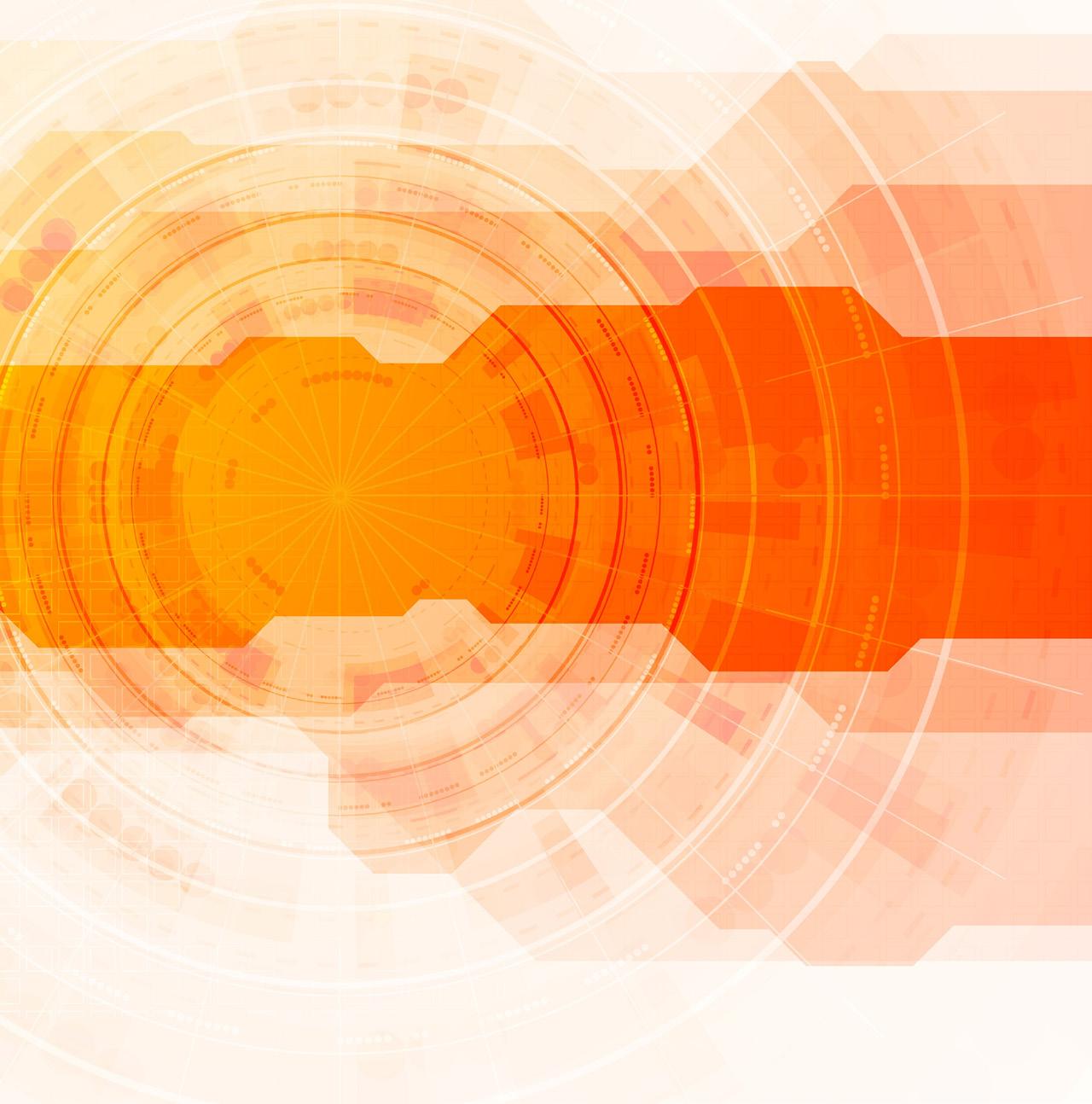
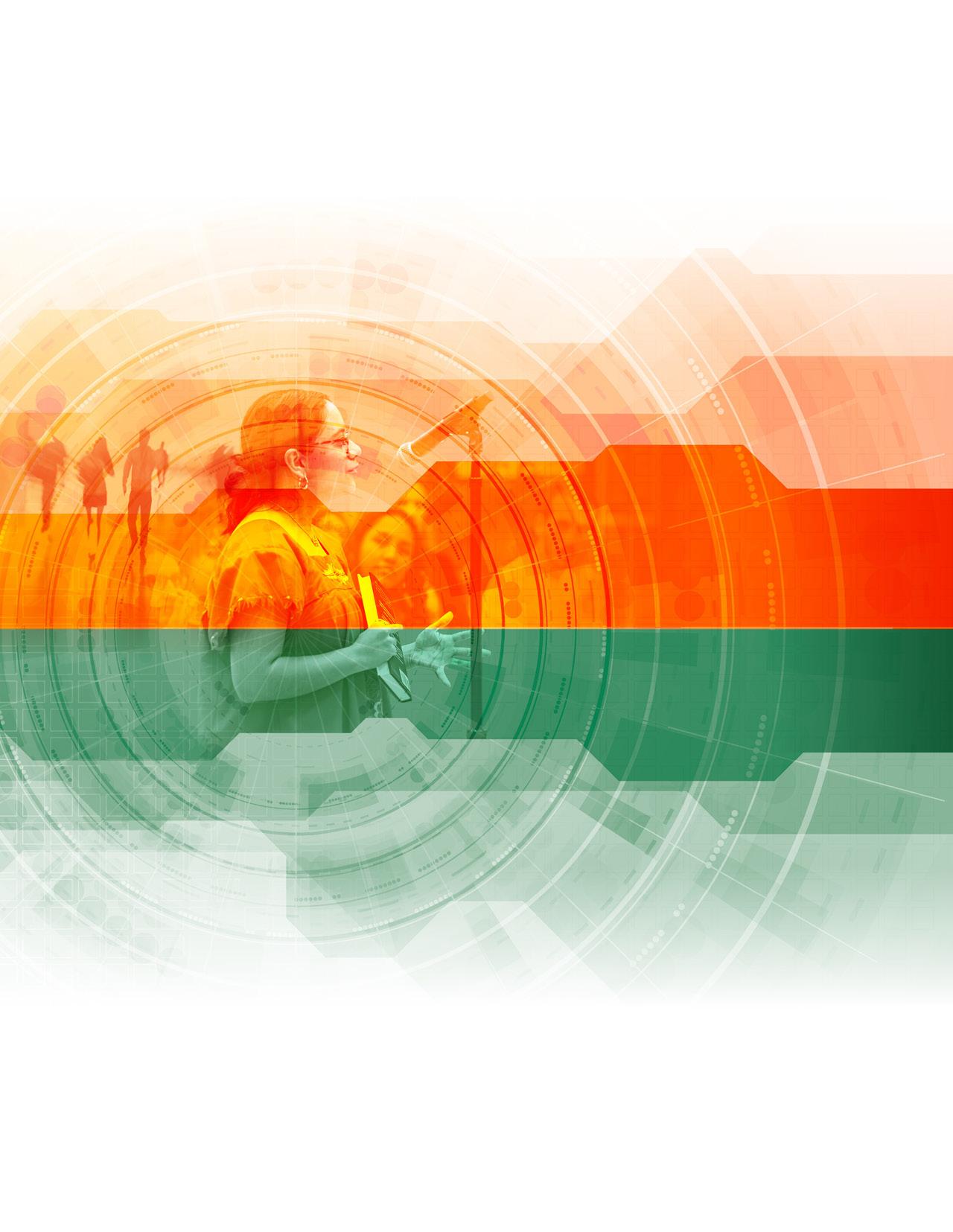

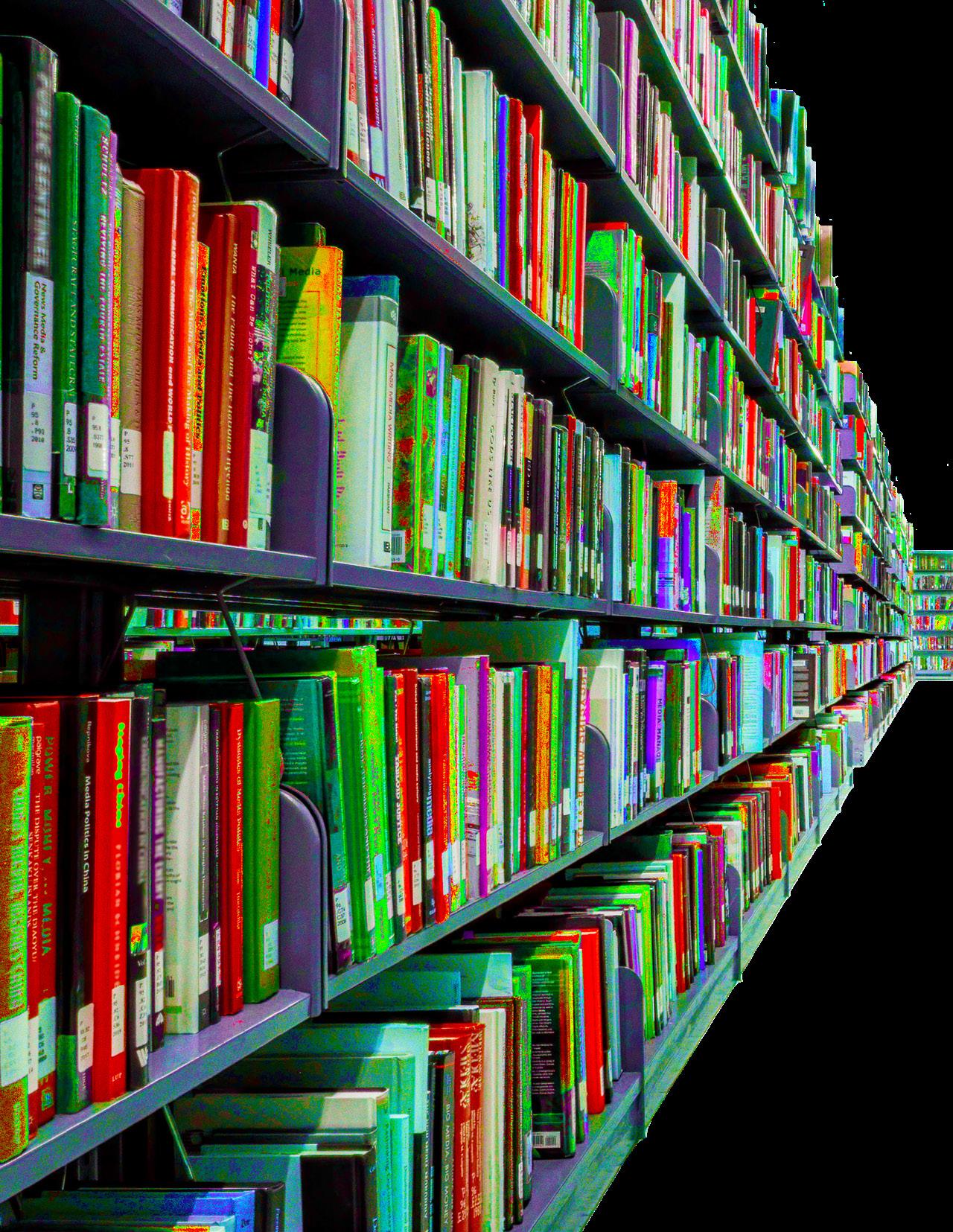





A LETTER FROM THE DEAN










A LETTER FROM THE DEAN

At the heart of every great university, is a library. And at the heart of every library is a commitment—not just to knowledge, but to possibility.
In the past year, the University of Miami Libraries have done more than support learning and research. We’ve reimagined what discovery, access, and the generation of new knowledge look like in the 21st century. We’ve built quiet spaces that amplify student focus. We’ve created group collaboration environments that support new modes of learning. We’ve opened exhibitions that connect past to present. We’ve launched programs that place students at the center of decision-making. And we’ve made measurable, meaningful progress toward expanding equity in information access.
This report captures some of those moments. You’ll hear from students who found direction in the archives and faculty whose teaching was transformed through librarian collaboration. In every story, there’s a common thread: the belief that libraries are not static storehouses, they are active engines of change. They are where a virtuous cycle of discovery, reflection, scholarship, and creativity unfolds every day. The Libraries are also places where society recalibrates its moral compass through education, dialogue, and shared memory.
Looking ahead, we remain focused on the future of knowledge. We’re investing in digital infrastructure, open scholarship, AI-integrated workflows and services, and spaces for collaboration and quiet study—with options for solitude when needed. We’re working to ensure that every member of the University and broader community feels welcome in the Libraries and has meaningful opportunities for engagement.
None of this is possible without our team. I am deeply proud of the librarians, archivists, staff, student workers, and supporters who continue to lead with creativity, compassion, and clarity of purpose. And to our donors and partners: thank you. Your vision and generosity ensure we can continue unlocking doors for all who seek to learn, create, and grow.
As the University marks its Centennial, we carry forward a hundred years of learning with a clear charge to build what comes next.
Warm regards,

Charles D. Eckman, Ph.D. Dean and University Librarian
Every space, collection, and team at the University of Miami Libraries is part of a shared architecture of access, built to connect people, ideas, and possibility.
People
61 librarian faculty
36 professional staff
48 support staff
Libraries
Coral Gables Campus
• Architecture Research Center
• Judi Prokop Newman Information Resource Center (Business)
• Marta and Austin Weeks Music Library
o Creative Studio
• Otto G. Richter Library (Interdisciplinary)
o Creative Studio
o Cuban Heritage Collection
o Digital Scholars Lab
o Learning Commons
o Special Collections
o University Archives
o XR Community Lab

Medical Campus in the Health District
• Louis Calder Memorial Library
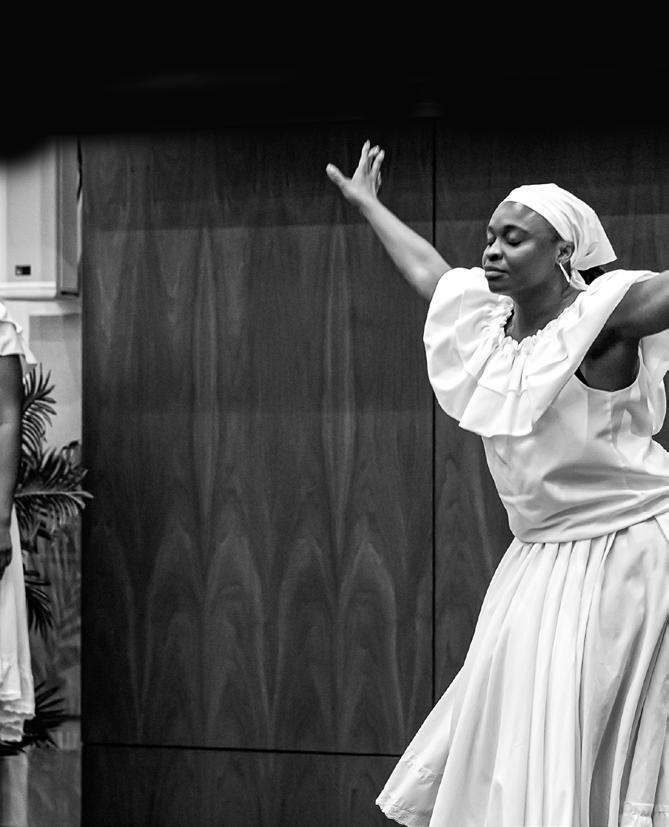
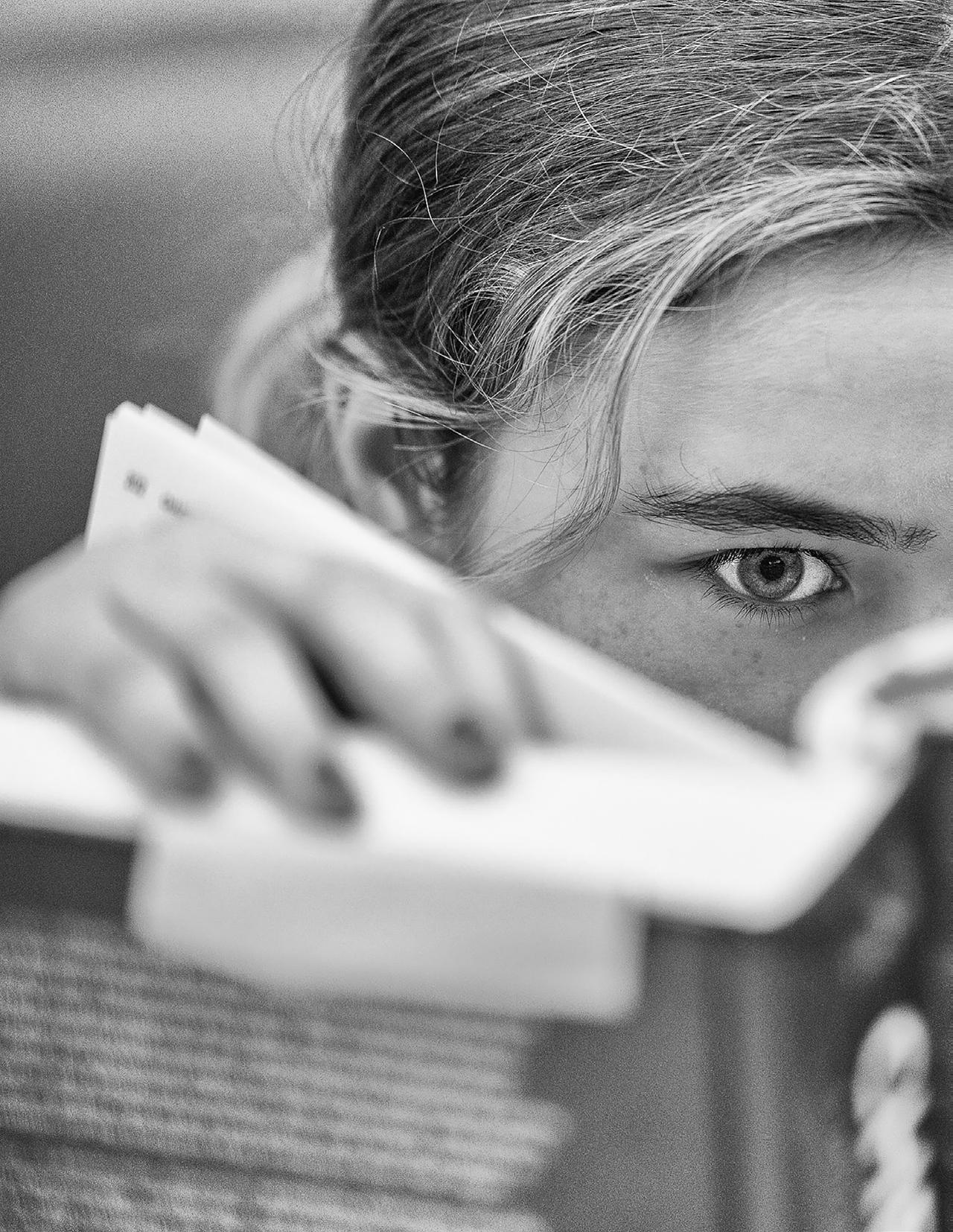
Rosenstiel Campus on Virginia Key
• Rosenstiel School Library
• 4,461,036 volumes
• 951 archival collections
Online
• 1,710,981 e-books
• 190,445 e-journals
• 1,577,962 digital image files
• 181,073 research and creative works (includes 8,702 theses and dissertations)
• 808 databases
• 263 datasets
• 90 laptops
• 284 virtual and augmented reality devices
• 47 digital cameras, recorders, mics

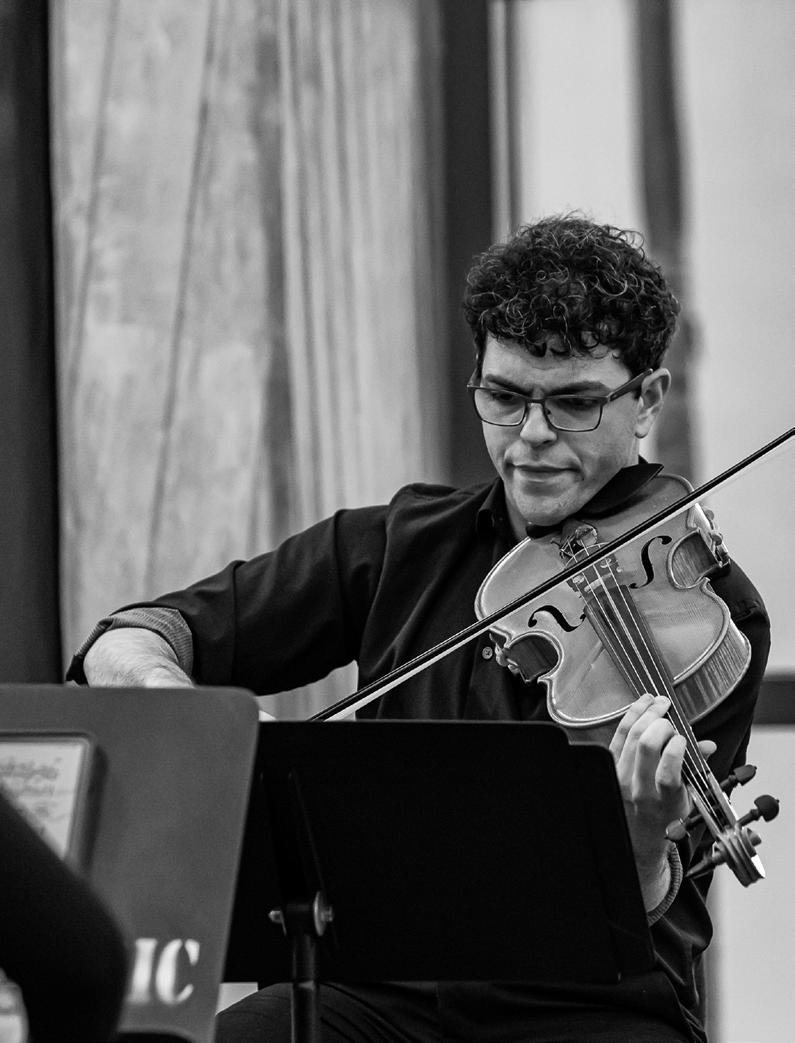

The University of Miami Libraries function as a laboratory for ideas, where experimentation, mentorship, and access to distinctive collections come together to advance new knowledge. As the University enters its second century, these initiatives signal how libraries will continue shaping discovery for the next hundred years. Through fellowships, intensive collaborations, digital tools, and emerging technologies, the Libraries create environments where students, faculty, and visiting scholars can test ideas and push their work further.

The Roberto C. Goizueta Graduate Fellowship and the Roberto C. Goizueta Distinguished Presidential Residence Program support advanced research using rare and primary sources. Together, these programs and grants supported new publications, exhibitions, and student-led projects in FY25.
The Jay I. Kislak Research Fellowship and Artistin-Residence program brings scholars to study maps, books, and manuscripts in depth. The Dave Abrams and Gene Banning Pan Am Research Grant and the World Wings International, Inc. Creative Grant further expand opportunities for original scholarship, supporting aviation history and creative projects. Through Research Sprints, faculty teams collaborate intensively with librarians over two days to refine questions, methods, and deliverables, which accelerates projects at key moments. Open scholarship is central to this work; in FY25, University faculty saved approximately $1.4 million in article processing charges through librarysupported publishing agreements and services.
With artificial intelligence reshaping higher education, the University of Miami Libraries launched the AI and Libraries Steering Group in December 2024 to guide responsible exploration. The cross-functional team began with an internal staff survey to understand knowledge, ideas, and concerns about AI. Findings now inform training, policy, and pilots. The Libraries also created a public AI research guide so students, faculty, and the community can access tools, concepts, and ethical frameworks in one place.
These structures sit alongside practice. Collaborative projects connected machine learning, geospatial analysis, and visual storytelling to surface new insights from archives and special collections. The Creative Studio, partnering with other University makerspaces, expanded hands-on exploration of XR, 3D printing, scanning, and visualization, making experimentation part of everyday learning.
Learners built practical skills and momentum for research.

3,816 learners 175in GIS and data workshops
1,694 one-on-one consultations with Research Data faculty
57,166 equipment loan transactions
702 students borrowed laptops
600 Creative Studio consultations and queries with faculty and staff research residencies hosted 10 in 2,310 transactions
At the University of Miami Libraries, care is embedded in our architecture, from the design of spaces to the rhythm of programming. Quiet, modular study pods added in early 2025 offered highdemand sanctuary during peak weeks and pointed to how well-being will remain a cornerstone of the Libraries’ next century.
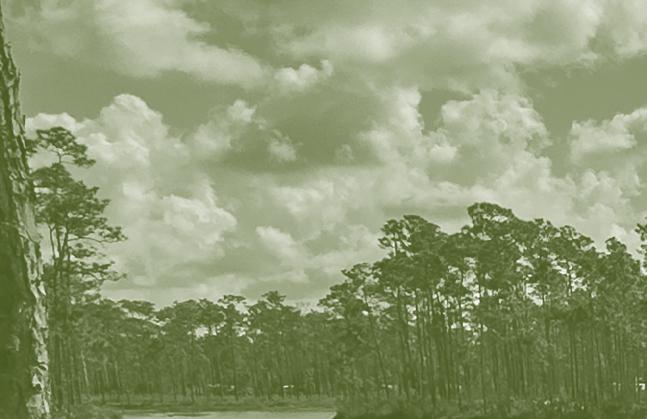
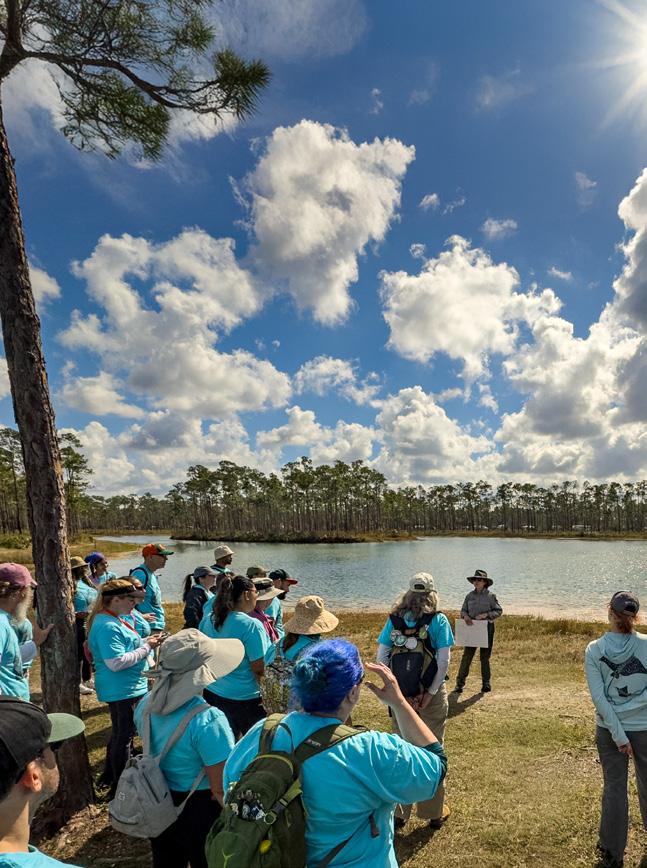
on mental health and inner resilience. The Libraries’ Mindfulness and Well-Being Programs are now a partner in the Learning Commons, embedding care into everyday academic life. What started as weekly guided sessions has grown into a sustained initiative with dedicated staff, a meditation room, and a robust suite of offerings. Today the program supports both in-person and online sessions, provides self-guided resources through the Libraries’ mindfulness website, and offers a wide range of programming, from yoga and meditation workshops to curated well-being collections. These resources serve students, faculty, and staff across the University, with recent expansions ensuring that public audiences can also benefit.
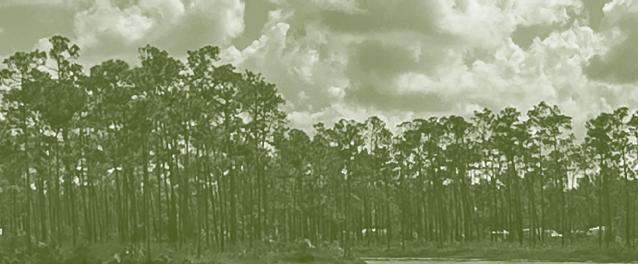
A Meditation Room anchors a program that sets our Libraries apart. What began as a dedicated space now supports robust, campus-wide programming that reaches into classrooms by faculty request, integrating contemplative practice with teaching and learning. In collaboration with the Counseling Center, the Faculty and Staff Assistance Program, and the Mindfulness-in-Law Program, we focus
Care extended outdoors and across teams. A day of service in the Everglades blended environmental stewardship with reflection, and a donor-supported well-being day at Patch of Heaven Sanctuary centered employee well-being. The goal in both cases was the same: restorative experiences that strengthen the people who support learning every day.
The Libraries have worked to position themselves as a campus site for connection, by hosting University events throughout the year, including Cane Kickoff for incoming students, Faculty Orientation, and gatherings of the President’s Council and the Parent Council. Through the Student Library Advisory Board, students partner with the Libraries to co-design study environments, signage, and programming so spaces feel welcoming and useful. These events and initiatives underscore the role of library spaces as welcoming, dependable places to meet, learn, and build community.
The Libraries continued to explore ways to improve accessibility, including attention to signage, digital resource usability, and event planning that considers a range of user needs and learning styles. Peer-led gratitude practices and well-being roundtables supported staff culture and psychological safety.
Reliable spaces and predictable access support well-being.
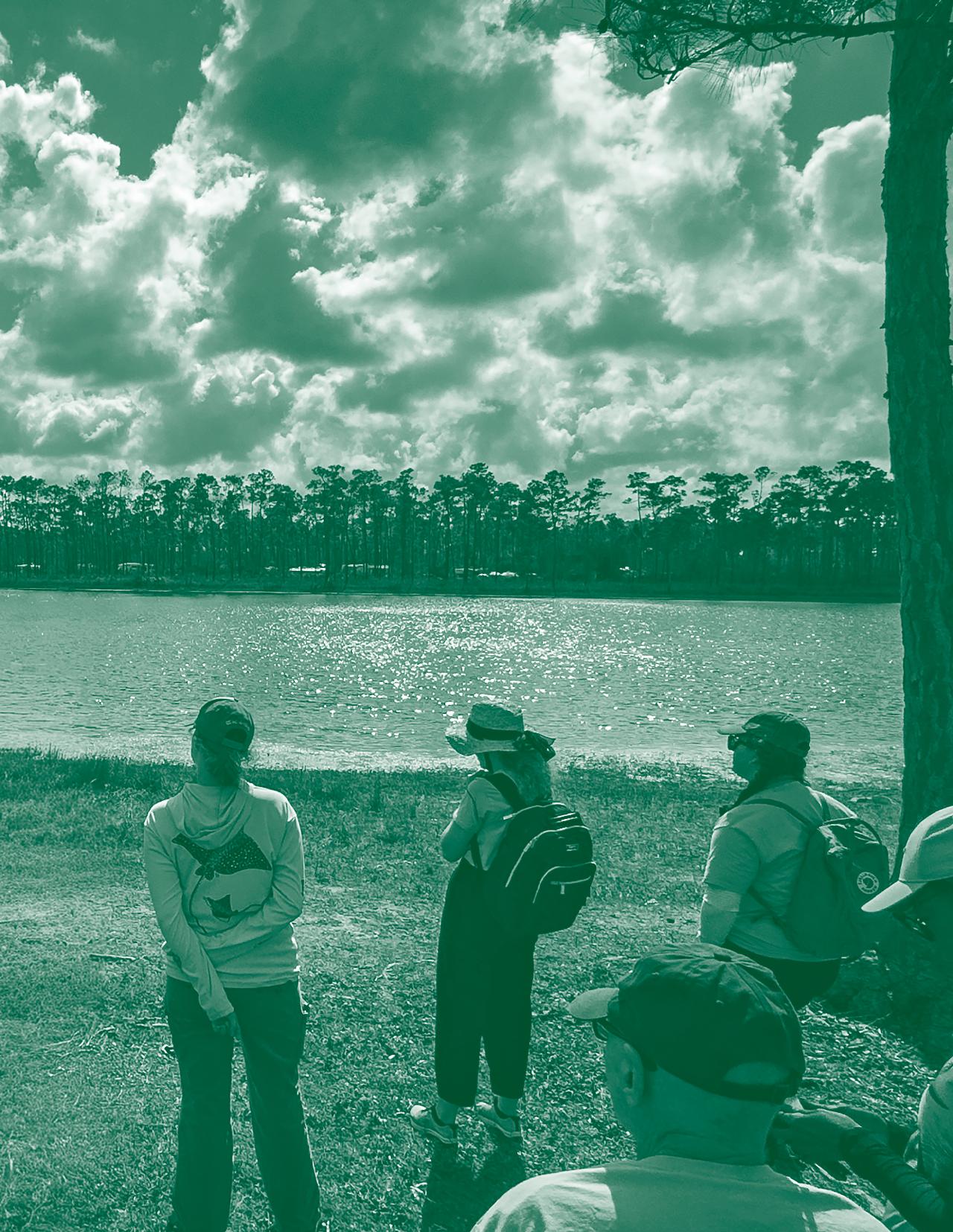
2,221 study seats across locations
1 seat per 6 undergraduates study seating capacity
798,248 669,221 Richter Library 129,027 Calder Library total visits
46,239 hours booked for rooms, carrels, and meeting spaces
Through exhibitions and programs that highlight history, creativity, and shared inquiry, the Libraries sparked dialogue and invited collective exploration. Each initiative contributed to a broader theme: using collections and storytelling to connect past and present, and to inspire conversations about identity, resilience, and possibility.
Celebrating 100 Years of Innovation and Impact at the University of Miami, an onsite exhibition, chronicles the University’s first century through photographs and artifacts, from early classrooms to a global research enterprise.
Media & Power How images and instruments shape public understanding. Highlights included:
Environment Programs that connect science, art, and stewardship. Highlights included:

Hopeful, Healthy Oceans highlighted environmental stewardship and the intersection of science and art, asking audiences to imagine sustainable futures for fragile ecosystems.
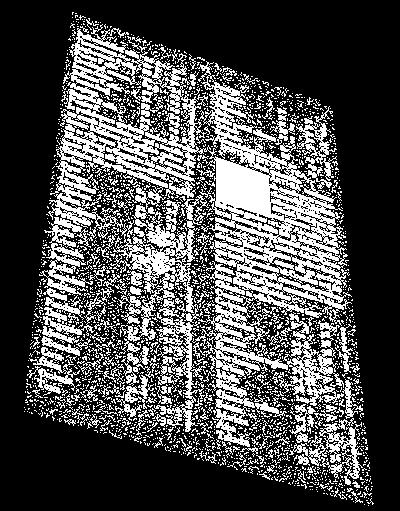
Cultural Memory Exhibitions that surface heritage and resilience across regions and decades. Highlights included:


Golden Age of the Jews of Al-Andalus celebrated a period of cultural flourishing and coexistence, bringing forward a story of resilience and shared heritage.
The Legacy of Sofía Ímber: Pioneering Journalist, Museum Founder and Director honored a figure whose vision reshaped the cultural life of Latin America and underscored the Libraries’ role in preserving voices of influence.
Two Centennial exhibitions highlight complementary milestones: Adventures in Time and Space, an interactive online StoryMap, traces a century of the University of Miami Libraries’ growth in spaces, collections, and services. Eye on the U:
The Art of Propaganda unpacked the power of images in shaping public opinion, drawing connections between historic artifacts and contemporary media landscapes.
Open New Worlds: From Feudalism to Empire and Revolution introduced rare maps and manuscripts that invited viewers to consider how discovery and colonization shaped hemispheric identities.
Through online exhibitions, recorded talks, and web features, the Libraries extended the reach of their collections and programs to audiences beyond campus. Live and hybrid formats made it easier for faculty, students, and community partners to participate and encouraged interdisciplinary dialogue in virtual and hybrid spaces.
Among the most resonant initiatives was One Book, One U, the campus-wide reading program that fosters critical dialogue through a shared text. This year’s selection, “The Kissing Bug” by Daisy Hernández, examined the overlooked disease Chagas and structures of health inequity. A standout event was the interdisciplinary panel at Calder Library in the Health District, where faculty from medicine, public health, and the humanities unpacked the book’s implications.
Open access support extended the reach of faculty research beyond the University, making scholarship easier for the public and global partners to discover and use.
To amplify research visibility, the Libraries curate and regularly update online publication lists for several schools and colleges (College of Engineering, Miami Herbert Business School, Miller School of Medicine, and Rosenstiel School of Marine, Atmospheric, and Earth Science), supporting communications and promotion, with additional units invited to participate.

13 exhibitions and 110 community events
Public engagement and open scholarship extend reach.

UM facultyauthored open access articles supported under 408 8 publisher agreements ($1.4 million annual value)
2
University of Miami-based peer-reviewed journals published (Anthurium, Collaborations)
269,362 views of Digital Collections and E-Resources
1,081,551 views of Scholarship@Miami 209 from countries
2,007,337 e-journal articles downloaded
86,639 e-books downloaded
3,408 faculty requests processed for course reading lists
364 course reading lists created
7,644 new digital images added to Digital Collections
32,851 books borrowed
7,998 distinctive collection items retrieved
411 researchers served (distinctive collections)
3,184 interlibrary borrows for UM
6,076 interlibrary loans supplied to other libraries
75 community visitors tours for 347
4 schools and colleges provided with curated, regularly updated publication lists
170,470 new resources acquired/ received/activated
Every day at the Libraries, someone finds a new path forward.

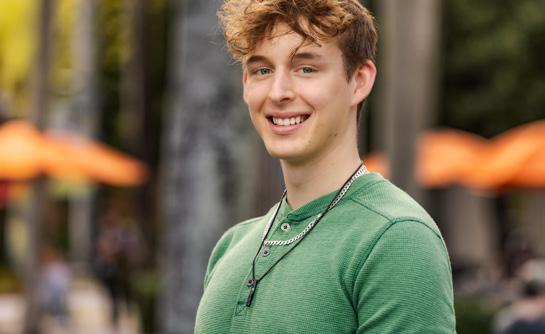
Wil Eveleth, a psychology major and peer research consultant, spent his senior year helping classmates refine research questions, navigate databases, and build search strategies. He points students to the Libraries’ Peer Research Consultants as the resource every student should know, a peer-to-peer service that makes starting and strengthening research less overwhelming. “The library is where curiosity gets traction,” he said. For Wil, the Libraries turned questions into projects, and projects into lasting impact.
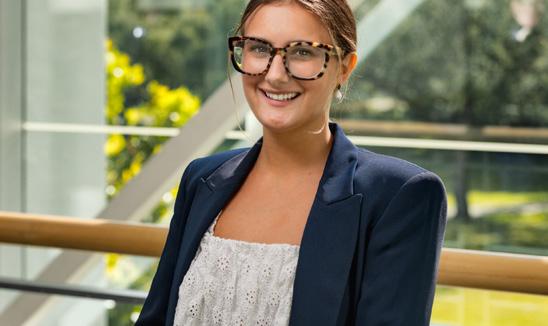
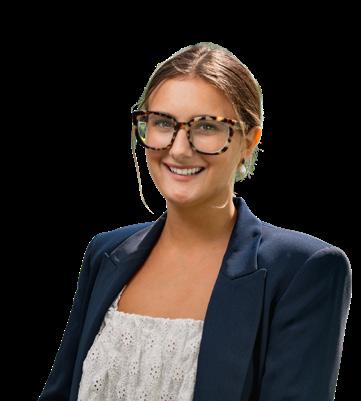
A graduating senior in Communication Studies, Anika Engel bridged health, public affairs, and storytelling in ways that echo the Libraries’ community-facing programs. Drawing on the Libraries’ research tools and guidance, she grounded her projects in evidence, connecting reporting on health topics with the lived experiences of communities. “The library helped me turn curiosity into credible work,” she said. Her interdisciplinary approach shows how library support can power real-world communication and public impact.
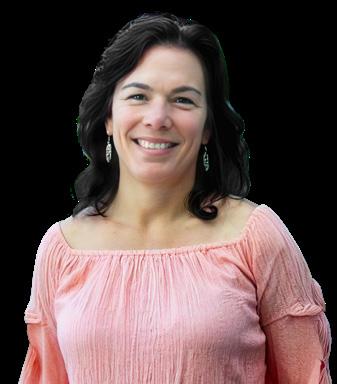
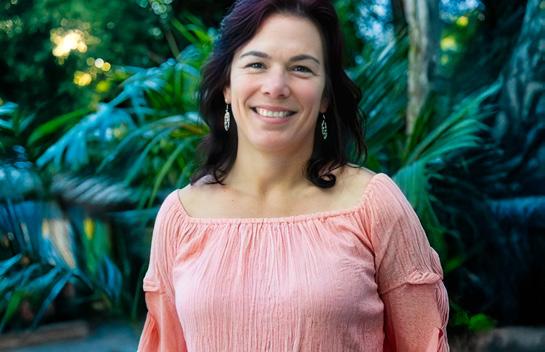
Tracy Ardren, professor of anthropology, collaborated with the Libraries to enrich her course on food, culture, and identity. Students explored archives and rare cookbooks to uncover how recipes carry life stories across generations. With librarian guidance, they connected primary sources to themes of migration, heritage, and resilience, producing projects that combined scholarship with personal narrative. Ardren reflected that the partnership allowed students to see recipes not just as instructions, but as historical texts, evidence of how communities create meaning through food. The collaboration highlighted the Libraries’ role in amplifying teaching and making research tangible for students.
Instruction and mentoring turn curiosity into capability.

3 Library Research Scholars and group presentations learners reached 300 5,570 through
4,000 research questions answered by Peer Research Consultants and information specialists
2 Adobe Research Scholars
400
70 research metrics & citation impact reports queries on open publishing, bibliometrics, faculty profiles, and Scholarship@Miami
Learning Commons Partners
3,867
Writing Center consultations
10,025 Camner Center tutoring sessions
1,166 Math Lab sessions Student Technology Help Desk incidents resolved
5,770
As the University of Miami enters its second century, the Libraries remain committed to building what’s next: open scholarship, collaborative technology, and welcoming spaces that empower every kind of learner and thinker.



Across disciplines we support, such as architecture, marine and environmental science, medicine and public health, business, engineering, music, data science and AI, Latin American and Caribbean studies, and Black history and diaspora studies, the Libraries connect people with primary sources, evidence, and tools that move ideas forward.
We are strengthening our role as educators, mentors, and partners in the research journey. We are working to ensure that the next hundred years of discovery are more open and connected. The Libraries are not only a record of what has been learned; they are a launchpad for what comes next.
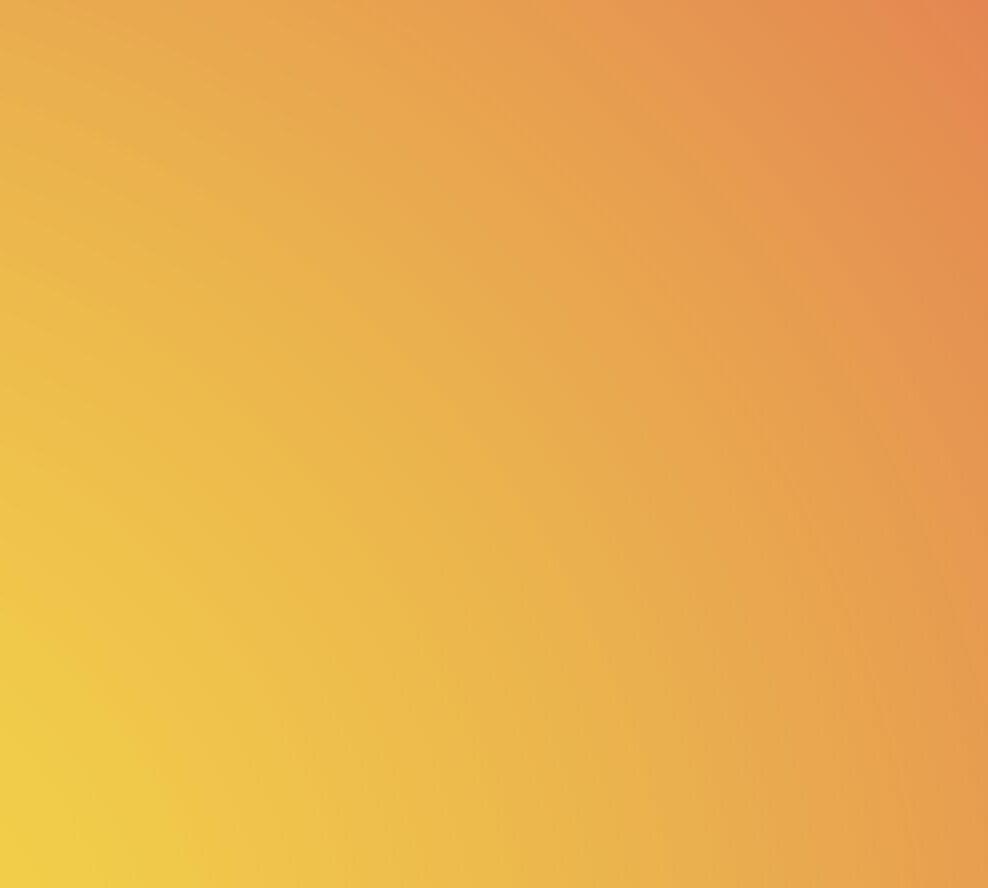

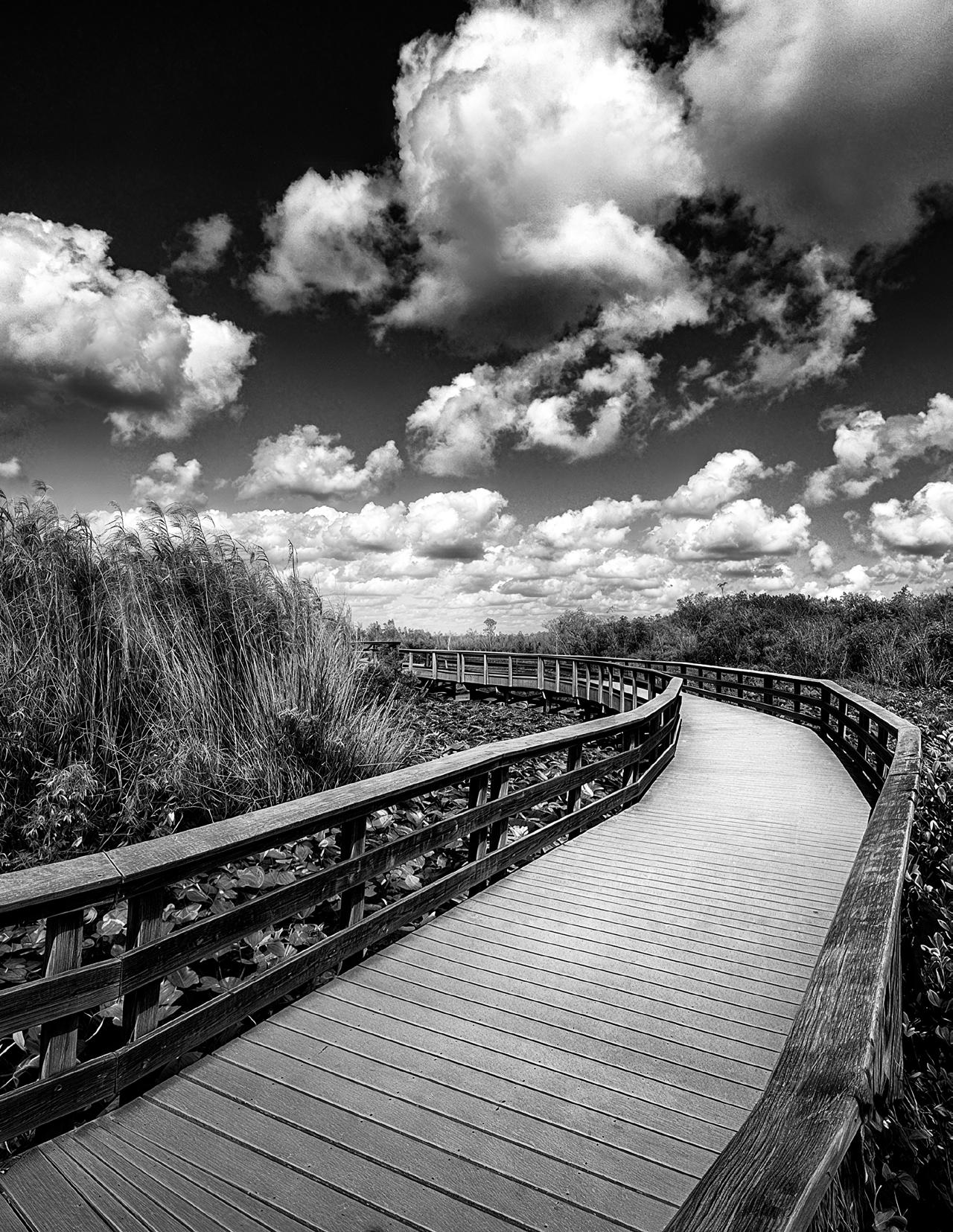


The University of Miami Libraries provide researchers, students, and clinicians with the highest quality access to collections and information resources; deliver critical research, teaching, learning, and creative services; design and curate environments that foster study, collaboration,and community; and amplify the global visibility of the University’s research, scholarship, and distinctive collections.
Discover what’s happening across the Libraries, from exhibitions and book talks to faculty research and community events. Visit our news page to explore the latest stories.
news.miami.edu/libraries
Explore upcoming and past events, from workshops and exhibitions to author talks and recorded lectures. Find details and recordings on our events page.
library.miami.edu/about/events
Our faculty and staff look forward to seeing you online or in person at any of the seven accessible locations:
Coral Gables Campus
Otto G. Richter Library (Interdisciplinary)
Architecture Research Center | School of Architecture
Judi Prokop Newman Information Resource Center | Miami Herbert Business School Law Library | School of Law
Marta and Austin Weeks Music Library and Technology Center | Frost School of Music
Medical Campus in the Health District
Louis Calder Memorial Library | Miller School of Medicine
Rosenstiel Campus on Virginia Key Rosenstiel School Library | Rosenstiel School of Marine, Atmospheric, and Earth Science
To learn more about our libraries and their collections, including contact information and directions, please visit library.miami.edu.
Quote: Thich Nhat Hanh, “Walking Meditation,” in “Call Me by My True Names” (Parallax Press, 1993). Images: Licensed to or produced by the University of Miami Libraries, from the Libraries’ holdings, or photographed on University property. Permissions: Written permission required for reuse except as permitted by law. Disclaimer: Views expressed do not necessarily represent the University of Miami. 202510

library.miami.edu/ about/uml-mailing-list